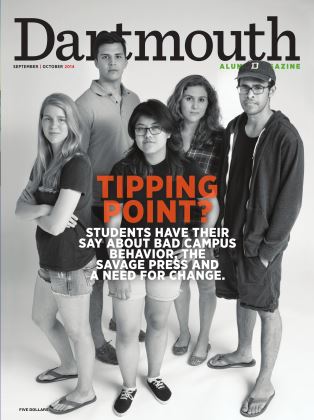A psychotherapist debunks Alcoholics Anonymous
"Addiction is a symptom, not a disease. It's important to understand the emotional triggers that cause addiction. Feeling overwhelmingly helpless is the most common."
"When people struggle with feelings of powerlessness, being toldrecovery lies in the hands of a higher power can be disheartening. The same is true of being told you're back at zero after one drink. That can be depressing and enraging besides making no clinical sense."
"Twelve-step programs are not the answer many people believe them tobe. The success rate of Alcoholics Anonymous (AA), for example, is 5 to 10 percent, which very few people realize. By AA's own reporting there is a 75-percent dropout rate in the first year."
"Group support is what makes AA successful at all. It calls itself a fellowship, which is accurate. Unfortunately, group support often erodes over time. It was never sensible to believe group support would resolve a problem as complex as addiction."
"lam not against AA. I'm against prescribing it routinely."
"AA is harmful when it leads people who fail to overcome addiction tofeel they would have succeeded if they had just worked harder at the 12 steps. We would not be made to feel we failed if some other kind of treatment—a drug, for example—didn't work for us."
"I didn't know that [AA cofounder] Dr. Bob Smith, class of 1902, was also an alum."
"If you need to be hospitalized for addiction, I would advise skipping any facility that utilizes something like yacht or horse therapy. Don't waste a lot of money on luxurious places in- stead of addressing your problems in a lasting way."
"As with the treatment of addiction, I have issues with the di- rection in which psychiatry has gone. It used to be about hu- man psychology. Now it's about what drugs to prescribe."
"A lot of people confuse psychological and physical addic- tion. The latter has nothing to do with the mind. It can be resolved by detoxification."
"It's common to confuse habit with addiction. Tens of millions of people drink every night who are not alcoholics."
"The National Institute of Drug Abuse has for years been promulgat- ing the idea that addiction is a brain disease, without any proof that neurobiological changes produce addiction in humans versus rats. There is an enormous body of evidence showing this idea to be false."
"As a society, we had a better understanding of what makes us tick emotionally as people a few decades ago than we do now. Then there was more looking within. Now it's all about creating labels for which we can prescribe drugs."
"There is no magic cure for psychological addiction. The issues that cause it are not resolved overnight, but some work can be done without professional help, and—yes—l encourage people seeking a better understanding of addiction to read my books."
HIS STORY
Notable Achievements: A distinguished career at Harvard and mental health facilities in Massachusetts; has written The Heart of Addiction (Harper Collins, 2002), Breaking Addiction (Harper Collins Publishers India, 2011) and The Sober Truth (Beacon Press, 2014)
Career: Training and supervising analyst emeritus, Boston Psychoanalytic Society and Institute; previously assistant clinical professor of psychiatry at Harvard Medical School, director of the substance abuse treatment unit of Harvard's McLean Hospital, director of the alcoholism treatment unit at Spaulding Rehabilitation Hospital, and director of the Boston Center for Problem Gambling
Education: A.8., biology; M.D., Harvard Medical School, 1970 Personal: Lives in southern California with wife Connie; father of two sons
 View Full Issue
View Full Issue
More From This Issue
-
 FEATURE
FEATUREThe Rookie
September | October 2014 By Matthew Mosk ’92 -
 COVER STORY
COVER STORYWhat’s Going On Here?
September | October 2014 By Jennifer Wulff ’96 -
 Feature
FeatureCan Students Police Themselves?
September | October 2014 By EVA XIAO ’14 -
 Feature
FeatureOff the Beaten Path
September | October 2014 By RIANNA P. STARHEIM ’14 -
 Feature
FeatureNotebook
September | October 2014 By JOHN SHERMAN -
 Feature
FeatureClass Notes
September | October 2014 By DARTMOUTH COLLEGE LIBRARY
LISA FURLONG
-
 Continuing Ed
Continuing EdRobert Christgau ’62
July/Aug 2002 By Lisa Furlong -
 Continuing Ed
Continuing EdFred Berthold Jr. ’45
Nov/Dec 2005 By Lisa Furlong -
 CONTINUING ED
CONTINUING EDAdam Nelson ’97
Sept/Oct 2008 By Lisa Furlong -
 CONTINUING ED
CONTINUING EDHal Ripley ’29
Jan/Feb 2009 By Lisa Furlong -
 CONTINUING ED
CONTINUING EDKelvin Chin ’73
SEPTEMBER | OCTOBER 2016 By LISA FURLONG -
 CONTINUING ED
CONTINUING EDAlison Fragale ’97
NOVEMBER | DECEMBER 2024 By Lisa Furlong
Continuing Ed
-
 Continuing Ed
Continuing EdTheodor Geisel ’25 (1904-1991)
Sept/Oct 2009 By Lee Michaelides -
 Continuing Education
Continuing EducationRobert Hager '60
Jan/Feb 2004 By Lisa Furlong -
 Continuing Ed
Continuing EdChiharu “Chick” Igaya ’57
Jan/Feb 2010 By LISA FURLONG -
 Continuing Ed
Continuing EdSusan Clark Ball ’80
SEPTEMBER | OCTOBER 2015 By LISA FURLONG -
 CONTINUING ED
CONTINUING EDMartha Pollack ’79
JANUARY | FEBRUARY 2018 By LISA FURLONG -
 CONTINUING ED
CONTINUING EDNathaniel Fick’99
JANUARY | FEBRUARY 2023 By LISA FURLONG

